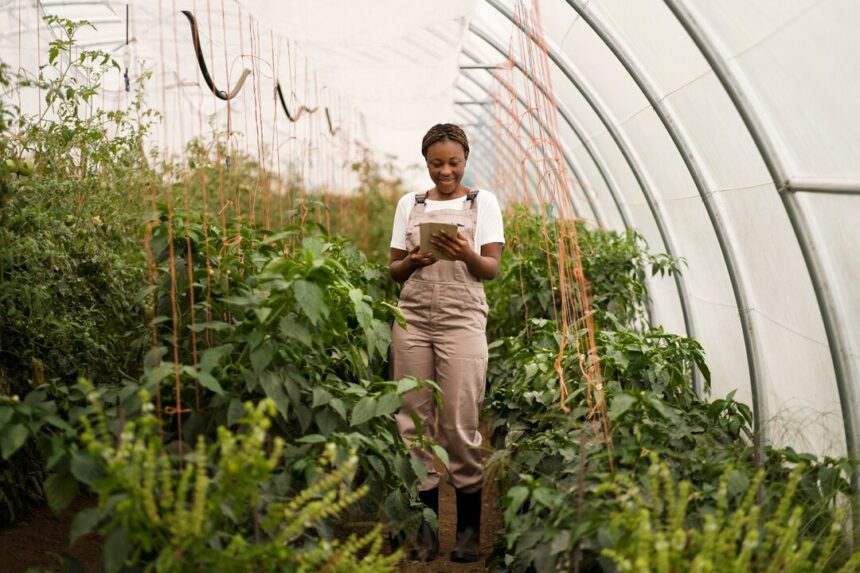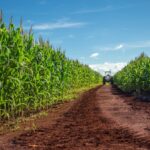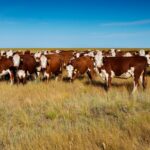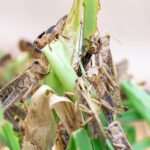Organic farming has emerged as a sustainable agricultural practice that prioritizes soil health, biodiversity conservation, and environmental stewardship. By eschewing synthetic inputs and embracing natural methods, organic farmers aim to produce healthy, nutritious food while minimizing negative impacts on the environment and human health. While organic farming offers numerous benefits, it also presents unique challenges that farmers must navigate to succeed in this eco-conscious approach to agriculture.
Benefits of Organic Farming:
- Environmental Sustainability: Organic farming practices promote soil health and biodiversity conservation, reducing soil erosion, preserving water quality, and mitigating pollution.
- Healthier Soils: Organic farmers rely on compost, crop rotation, and cover cropping to improve soil structure, fertility, and nutrient cycling, fostering long-term soil health and resilience.
- Nutrient-Rich Food: Organic farming emphasizes natural soil amendments and crop management practices that enhance the nutritional content of fruits, vegetables, grains, and other organic products.
- Reduced Chemical Exposure: By avoiding synthetic pesticides, herbicides, and fertilizers, organic farming minimizes chemical residues in food, protecting consumers, farmers, and ecosystems from potential health risks.
- Biodiversity Conservation: Organic farms provide habitat for pollinators, beneficial insects, birds, and other wildlife, promoting ecological balance and supporting ecosystem services.
- Climate Resilience: Organic farming practices, such as agroforestry, conservation tillage, and organic matter incorporation, contribute to climate change mitigation and adaptation by sequestering carbon and enhancing soil moisture retention.
- Market Demand: Growing consumer awareness and demand for organic products create market opportunities for farmers to access premium prices and niche markets, enhancing farm profitability and economic viability.
Challenges of Organic Farming:
- Yield Variability: Organic farming often involves lower yields compared to conventional agriculture, requiring careful management and risk mitigation strategies to maintain productivity and profitability.
- Weed, Pest, and Disease Management: Organic farmers face challenges in controlling weeds, pests, and diseases without synthetic chemicals, relying on crop rotation, biological control, and cultural practices for effective management.
- Transition Period: Converting conventional farms to organic production requires a transition period of several years, during which farmers must adhere to organic standards without reaping the full benefits of organic certification.
- Knowledge and Training: Successful organic farming requires specialized knowledge and skills in organic production techniques, soil management, pest control, and certification requirements, necessitating ongoing training and education for farmers.
- Certification Costs and Requirements: Organic certification entails significant paperwork, record-keeping, and inspection costs, posing financial and administrative challenges for small-scale and resource-limited farmers.
- Market Access and Competition: Despite growing demand for organic products, organic farmers may face challenges in accessing markets, competing with conventional producers, and meeting certification and labeling requirements.
- Resource Limitations: Organic farming relies on natural inputs, such as compost, organic fertilizers, and beneficial insects, which may be limited in availability or costly to procure, particularly in remote or resource-constrained areas.
Organic farming offers a sustainable and environmentally friendly alternative to conventional agriculture, with numerous benefits for soil health, biodiversity, and human health. However, organic farmers must navigate challenges such as yield variability, weed and pest management, certification requirements, and market access to succeed in this demanding yet rewarding endeavor. By embracing innovation, knowledge sharing, and collaboration, organic farmers can overcome challenges and contribute to a more resilient, equitable, and sustainable food system for future generations.
Join 'Farmers Mag' WhatsApp Channel
Get the latest Farming news and tips delivered straight to your WhatsApp
CLICK HERE TO JOIN






